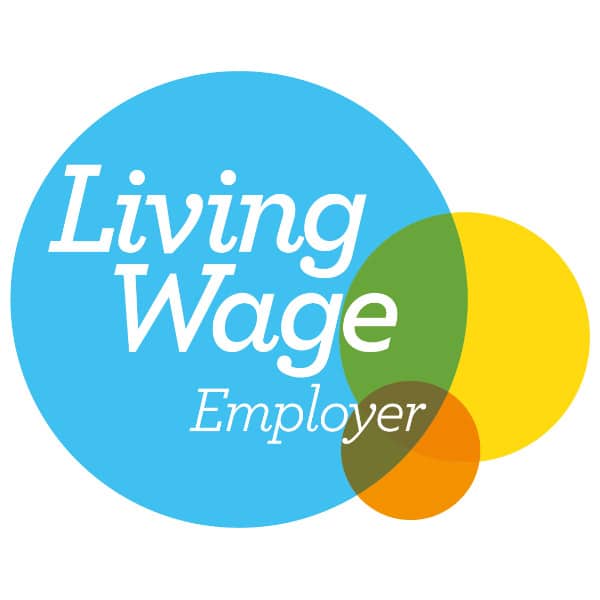The Real Living Wage is a voluntary wage rate based on the cost of living. The rate is currently £12.60 across the UK and £13.85 in London. This is compared to the national minimum wage set by the government which is currently £11.44.
According to the Living Wage Foundation, around 15,000 businesses have pledged to pay all their employees the rate they have calculated. We are proud to say that we are now accredited. It’s important for us to pay employees a salary that they deserve that also meets everyday needs.
The new rate was announced on 23th October 2024. Employers have up until 1st May 2025 to make this change to remain a real living wage employer. This means that around half a million workers yearly salary will be £2,262 a year above the Government’s minimum wage.
Recent research from the Living Wage Foundation reveals that although inflation has eased, many of Britain’s 3.7 million low-paid workers are still facing the lasting effects of high prices. Around 42% have less than £10 left each week after paying for essentials, 39% have used a food bank in the past year, and 32% have skipped meals due to financial pressures.
Katherine Chapman, Living Wage Foundation Director, said:
“Low paid workers have been hardest hit by the cost-of-living crisis and are still struggling to stay afloat amidst persistently high prices. The real Living Wage remains the only UK wage rate calculated based on actual living costs, and the new rates announced today will make a massive difference to almost half a million workers who will see their pay increase.
It’s a challenging time for businesses too, which is why it is so encouraging to see the Living Wage movement continue to grow at pace. This year, we reached the major milestone of 15,000 accredited Living Wage Employers – with half of them signing up since 2021. Employers who want to go beyond the Government’s minimum wage and ensure their workers are paid in line with the real cost of living can look to these leading employers and accredit with the Living Wage Foundation.”
The Difference between the real living wage and the national living wage
The real living wage (RLW) is independently calculated and also based on goods and services people need to live. In contrast, the national living wage (NLW) was introduced in April 2016 by the Government and is based on a percentage of medium earnings. A target has been set to reach 66% of median earnings by 2024. Unlike the RLW, the NLW is statutory.
The RLW applies to staff who are 18 or over. The NLW is available to staff who are 21 years and older. The Government originally made the NLW available to over 25’s as they claimed they are more likely to face changing financial circumstances and in work poverty. From 2024, it now applies to 21 years and older. However, The Living Wage Foundation believes that if people aged 18 years and over were payed the same, it would make it less impossible for them to get on the property ladder.
The final difference is that the foundation takes in to account the higher cost of living in London and has set the recommended rate for this area as £13.85. The Government has not applied a higher rate for London. The Government national rate is currently £11.44 UK wide.
What are the benefits?
There are many benefits that come with offering your staff the Real Living Wage. According to The LW Foundation, 94% of employers have benefited since accrediting. Other successes include:
- 87% say it has improved their business reputation.
- 60% claimed it has also improved retention rates.
- 66% say it helped them stand out from other businesses.
- 64% it improved relationships between managers and staff.
We have been accredited employers since 2021. We were always paying our staff the living wage. However, it was important to us to become accredited to lead by example and also show future employees that their wellbeing matters to us.
How to Become a Living Wage Employer
You can join the club by registering on the real Living Wage Foundation website. You need to show that you pay the recommended rate to all directly employed staff, have a plan to pay contractors this rate, and also complete the application form on their website.
Once you are accredited you will:
- Appear on their website and searchable map
- access to guidance on implementing the RLW through procurement
- Use the official logo on your website
- National week pack with materials and guidance
- Stay up to date with their regular newsletter
- + more
In Conclusion
Becoming accredited shows public commitment to fair pay and shows you care about your employees. The cost of living crisis is putting a financial strain on most people and offering a fair wage will help to tackle this. We understand this is a difficult time for businesses too. However, it’s important to remember your staff are the ones who will get you through this.
Contact Us
If you would like help becoming a Real Living Wage employer, feel free to contact our outsourced HR Consultants.







